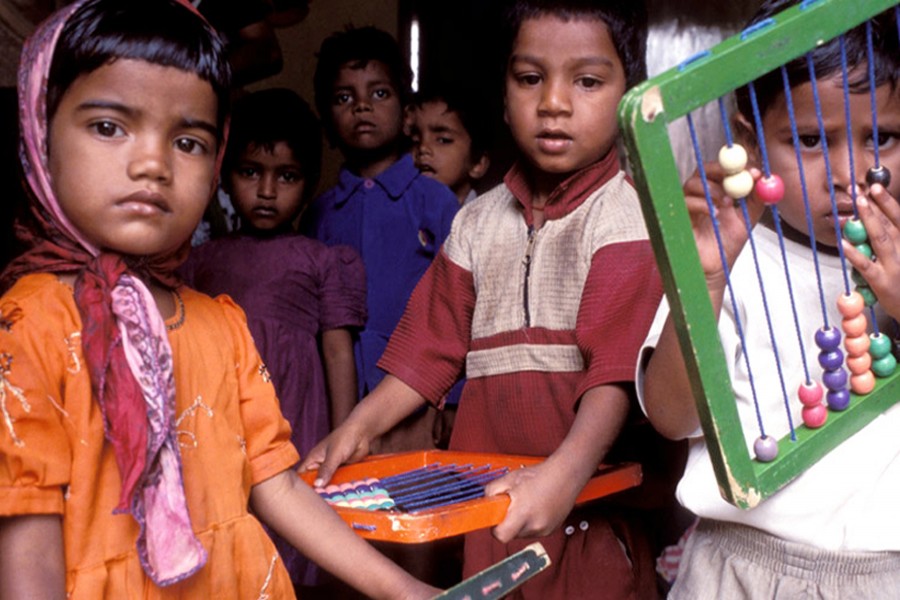Like last two consecutive fiscal years, the child-centric budget report has not been published this year too, thus indicating the government's little attention on their development and wellbeing.
The government announced the Tk 6.78 trillion budget for the fiscal year 2022-2023 on Thursday. But Finance Minister AHM Mustafa Kamal did not announce and publish the child-centric budget report this time.
Children aged between 0-18 years account for about two-fifths of the country's population.
The allocation for them was only 14.1 per cent of the total national budget for FY 2018-19, according to the Blooming Children Report 2018 and 15.3 per cent in the budget for FY 2019-20, prepared by the Ministry of Finance.
In the budget for FY 2018-19, the government aimed to achieve 20.0 per cent target by 2020.
However, child budget reports for the last two fiscal years (FY2020-21 and FY2021-22) have not been prepared. As a result, it is difficult to say how much the government has actually spent on children during this period.
Economists say attention to child budget is particularly important for addressing the adverse impacts of the Covid-19 pandemic on the country's children.
Former finance minister Abul Maal Abdul Muhith unveiled the report titled 'Budget Thoughts for Children', first of its kind in Bangladesh, during the budget for FY 2015-16.
From the government's child budget report for FY 2019-20, it is found that only 2.78 per cent of the country's GDP was budgeted for children.
Talking to the FE, CPD Distinguished Fellow Prof Mustafizur Rahman said child budget is a tool to identify and calculate the amount of national budget which is allocated for ensuring the children's socio-economic welfare and rights in line with national polices and priorities.
However, the budget report was not published in the last two annual budgets amid the Covid-19 pandemic and even this fiscal year, he lamented.
The country counts substantial losses in the gross domestic product (GDP) and employment due to prolonged school closures amid Covid-19, a latest Asian Development Bank (ADB) study said.
"Earning losses from school closures have led the GDP to witness 3.1 per cent fall against the baseline, assuming no Covid-19," according to the study styled "Potential Economic Impact of Covid-19-Related School Closures".
The country's skilled employment would fall by 0.244 per cent and 0.759 per cent in 2023 and 2025 respectively, according to the study.
Skilled employment would fall by 3.18 per cent in Bangladesh and unskilled labour employment by 3.16 per cent in 2030, it showed.
The study also put forward three policy recommendations to the governments--supporting learning recovery, investing in education and skills, and embracing the digital transformation in education--to mitigate these impacts while building a more resilient education system.
The budget on children also helps understand the government's projects and plan on them, Prof Mustafizur pointed out.
Learning and earning loss of children saw a substantial impact during the pandemic which may augment in the coming days if the government fails to highlight and invest more on them to exploit the full potential of the demographic dividend, he said.
Halima Akter, manager, policy and advocacy, Educo Bangladesh, said out of 230 indicators of Sustainable Development Goals (SDGs), there are 18 indicators under 15 different targets which focus on children's education, health and overall development.
Highlighting the children's development and wellbeing to help achieve the SDGs by 2030, the government should release the report every fiscal year, she told the FE.
Of these 18 indicators, eight have been marked as National Priority Target (NPTs) by the SDG working committee set up by the Prime Minister's Office (PMO).


